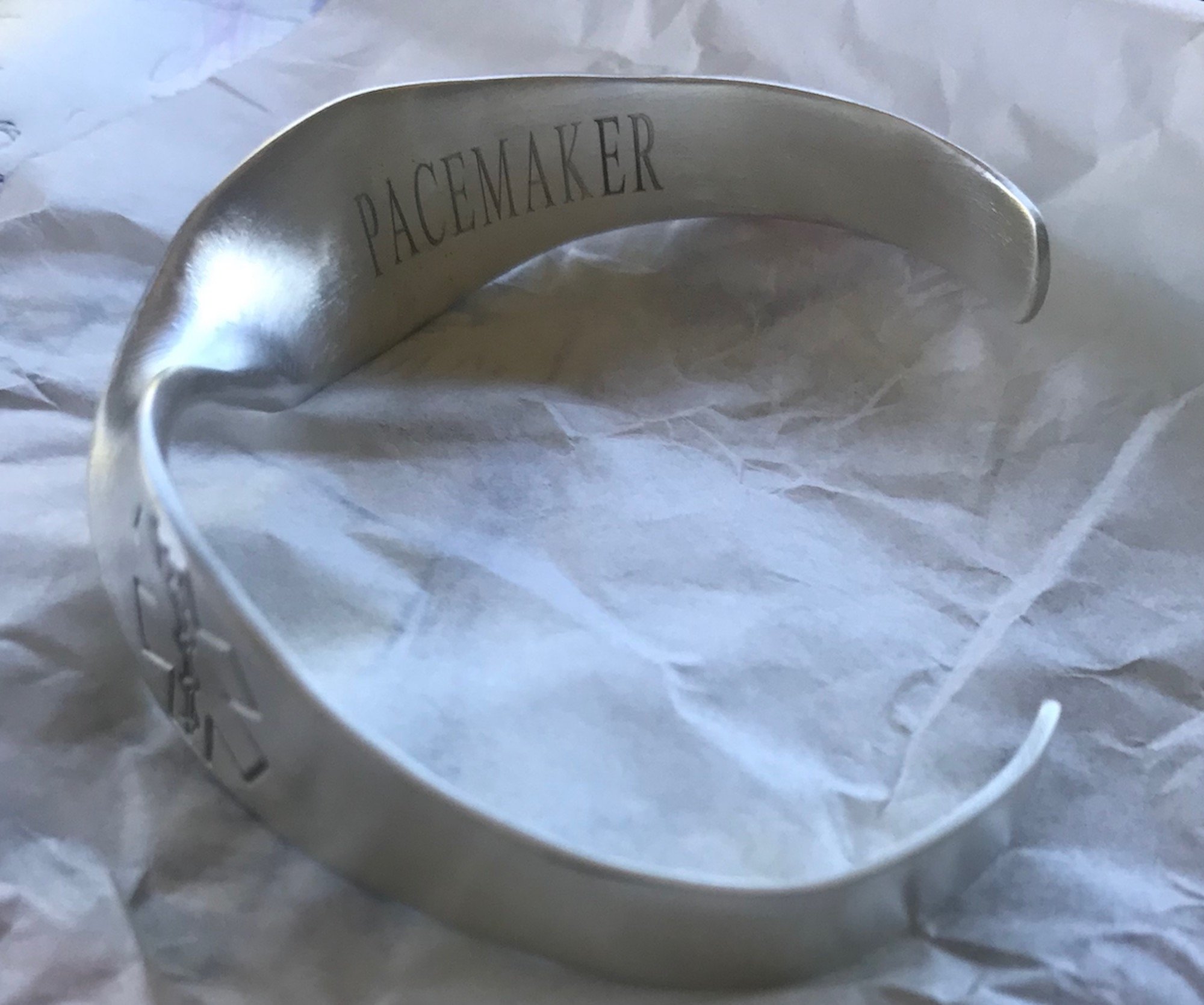Pacemaker Medical Alert Bracelets
Pacemakers are small electronic devices that are implanted into the chest to regulate the heartbeat. These devices send electrical signals to the heart muscle to help it beat in a regular rhythm. Pacemakers are commonly used to treat various heart conditions, such as arrhythmias, bradycardia, and heart block. If you have a pacemaker, it is essential to wear a medical ID at all times.
Here are some reasons why wearing a medical ID is important if you have a pacemaker:
Identification of the Pacemaker
A medical ID bracelet or necklace can quickly identify that an individual has a pacemaker implanted. In an emergency, this information can help medical professionals provide the appropriate care quickly. Without knowing that an individual has a pacemaker, medical professionals may administer treatments or tests that could damage the device or interfere with its function.
Information about the Pacemaker
A medical ID can also provide information about the type of pacemaker an individual has and how it is programmed. This information can help medical professionals determine how to provide appropriate care and treatment. For example, some pacemakers are designed to respond to specific heart rhythms or conditions, and medical professionals need to know this information to provide the appropriate care.
Medication Interactions
Certain medications can interfere with pacemaker function, and wearing a medical ID can help medical professionals avoid prescribing these medications. It is essential to inform your healthcare provider about your pacemaker and to wear a medical ID at all times to ensure that you receive appropriate care and medication.
Medical History and Other Conditions
A medical ID can also provide information about an individual's medical history and other conditions that may affect their health. For example, if an individual has a history of heart disease or other medical conditions, medical professionals need to know this information to provide appropriate care.
Peace of Mind
Wearing a medical ID can provide peace of mind for individuals with pacemakers and their loved ones. It can help ensure that appropriate care is provided in an emergency, reducing stress and anxiety for everyone involved.
In addition to wearing a medical ID, individuals with pacemakers should also take steps to care for their device properly. Here are some tips for maintaining a pacemaker:
Follow your Healthcare Provider's Instructions
Your healthcare provider will provide specific instructions on caring for your pacemaker. Follow these instructions carefully to ensure that your device functions correctly.
Avoid Certain Activities
Some activities, such as contact sports or high-intensity exercise, can damage a pacemaker. Talk to your healthcare provider about which activities are safe for you.
Avoid Magnetic Fields
Magnetic fields can interfere with pacemaker function. Avoiding certain equipment, such as MRI machines, and keeping electronic devices away from your pacemaker can help prevent interference.
Monitor your Device
Your healthcare provider may recommend regular device monitoring to ensure that your pacemaker is functioning correctly. This monitoring may involve visiting a clinic or using a home monitoring device.
Pacemakers are essential devices that help regulate the heartbeat in individuals with various heart conditions. If you have a pacemaker, it is vital to wear a medical ID at all times. A medical ID can provide critical information about your pacemaker and help medical professionals provide appropriate care in an emergency. In addition to wearing a medical ID, individuals with pacemakers should follow their healthcare provider's instructions and take steps to care for their device properly. By doing so, individuals with pacemakers can maintain their health and wellbeing while living with this life-saving device.
Pacemaker Online Resources
American Heart Association (AHA): The AHA is a well-known organization that provides extensive information on heart health, including pacemakers. They offer resources on different heart conditions, treatment options, and lifestyle changes for maintaining heart health. Their website includes articles, guidelines, and educational materials.
Heart Rhythm Society (HRS): HRS is an international organization focused on promoting education and advocacy for heart rhythm disorders. They offer information on pacemakers, arrhythmias, and other related topics. They also host conferences and provide guidelines for healthcare professionals.
Pacemaker Club: Pacemaker Club is an online community and support forum for individuals who have pacemakers or are considering getting one. It provides a platform for sharing experiences, asking questions, and connecting with others who have similar experiences.
Mended Hearts: Mended Hearts is a national nonprofit organization in the United States that offers support to individuals with heart disease, including those with pacemakers. They provide resources, educational materials, and local support groups.
Medtronic Foundation: Medtronic is one of the major manufacturers of pacemakers and other medical devices. Their foundation supports various initiatives related to health and medical technology. While not exclusively focused on pacemakers, their work can provide valuable insights into advancements in medical devices and therapies.
St. Jude Medical Foundation (now part of Abbott): St. Jude Medical, now a part of Abbott, is another significant manufacturer of cardiac devices, including pacemakers. Their foundation supports initiatives related to healthcare and medical research.
